Manufacturing Consent: Noam Chomsky and the Media is a Australien film of genre Documentary directed by Mark Achbar released in USA on 17 march 1993 with Mark Achbar
Manufacturing Consent: Noam Chomsky and the Media (1992)

If you like this film, let us know!
- Infos
- Casting
- Technical infos
- Photos
- Videos
- Film quotes
- Characters
- Music
- Awards
Manufacturing Consent: Noam Chomsky and the Media (1992) is a documentary film that explores the political life and ideas of Noam Chomsky, a linguist, intellectual, and political activist. Created by two Canadian filmmakers, Mark Achbar and Peter Wintonick, it expands on the ideas of Chomsky's earlier book, Manufacturing Consent: The Political Economy of the Mass Media, which he co-wrote with Edward S. Herman.
The film presents and illustrates Chomsky's and Herman's thesis that corporate media, as profit-driven institutions, tend to serve and further the agendas of the interests of dominant, elite groups in the society. A centerpiece of the film is a long examination of the history of The New York Times' coverage of the Indonesian occupation of East Timor, which Chomsky says exemplifies the media's unwillingness to criticize an ally of the elite.
Until the release of The Corporation (2003), made by Mark Achbar, Jennifer Abbott and Joel Bakan, it was the most successful feature documentary in Canadian history, played theatrically in over 300 cities around the world; won 22 awards; appeared in more than 50 international film festivals; and was broadcast in over 30 markets. It has also been translated into a dozen languages.
Chomsky's response to the film was mixed; in a published conversation with Achbar and several activists, he stated that the film simply doesn't communicate his message, leading people to believe that he is the leader of some movement that they should join. In the same conversation, he criticizes The New York Times review of the film, which mistakes his message for being a call for voter organizing rather than media critique.
^ Noam Chomsky (2002). An Exchange on Manufacturing Consent. In Understanding Power. The New Press.
Synopsis
Partant du point de vue de Noam Chomsky, célèbre linguiste, sur les médias, et s'appuyant sur ses réflexions réunies dans ses deux récents ouvrages "Illusions nécessaires" et "la Fabrication du consentement", ce film se penche surtout sur les sociétés démocratiques dont les populations non contraintes par la force sont soumises à des formes plus subtiles d'oppression idéologique. Il examine le pouvoir de l'information et les forces qui, dans la société, s'exercent sur sa formulation et sa propagation.Actors

Mark Achbar
(Self - Interviewer)

Peter Jennings
(Self (uncredited))
Comments
Leave comment :
Suggestions of similar film to Manufacturing Consent: Noam Chomsky and the Media
There are 1 films with the same actors, 3 films with the same director, 8965 with the same cinematographic genres, 3242 films with the same themes (including 0 films with the same 3 themes than Manufacturing Consent: Noam Chomsky and the Media), to have finally 70 suggestions of similar films.If you liked Manufacturing Consent: Noam Chomsky and the Media, you will probably like those similar films :
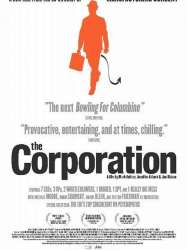
The Corporation (2003)
, 2h25Directed by Jennifer Abbott, Mark Achbar
Origin Canada
Genres Documentary
Themes Environmental films, Medical-themed films, La mondialisation, Films about the labor movement, Documentary films about business, Documentary films about environmental issues, Documentaire sur une personnalité, Documentary films about politics, Documentary films about health care, Documentaire sur le monde du travail, Films about psychiatry, Films about disabilities, Political films
Actors Michael Moore, Naomi Klein
Rating79%





The documentary shows the development of the contemporary business corporation, from a legal entity that originated as a government-chartered institution meant to affect specific public functions to the rise of the modern commercial institution entitled to most of the legal rights of a person. The documentary concentrates mostly upon North American corporations, especially those in the United States. One theme is its assessment of corporations as persons, as a result of an 1886 case in the United States Supreme Court in which a statement by Chief Justice Morrison R. Waite led to corporations as "persons" having the same rights as human beings, based on the Fourteenth Amendment to the United States Constitution.
 , 1h
, 1hDirected by Peter Wintonick
Origin Canada
Genres Documentary
Themes Films about films, Documentary films about business, Documentary films about the film industry, Documentary films about law, Documentaire sur une personnalité, Documentary films about films
Rating72%





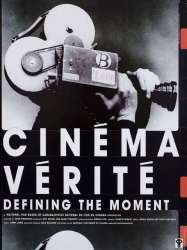 , 1h43
, 1h43Directed by Peter Wintonick
Origin Canada
Genres Documentary
Themes Films about films, Documentary films about business, Documentary films about the film industry, Documentary films about films
Rating65%






Reporter (2009)
Genres Documentary
Themes Films about writers, Films about journalists, Documentaire sur une personnalité
Actors Mia Farrow
Rating71%





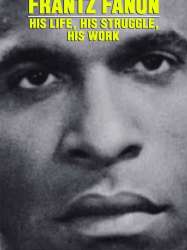 , 52minutes
, 52minutesOrigin Algerie
Genres Documentary
Themes Films set in Africa, Films about writers, Documentary films about law, Documentary films about historical events, Documentaire sur une personnalité, Documentary films about politics, Political films
This movie depicts Frantz Fanon's life. A psychiatrist from Martinique, he became a spokesman for the anti-colonialist struggle. In 1952, Frantz Fanon wrote Black Skin, White Masks, an analysis of racism and the ways in which its victims internalize it. In the 50s, he aided the rebels of the Algerian anti-colonial war. Expelled from Algeria in 1956, he moved to Tunis, Tunisia, where he wrote for the rebel newspaper El Moudjahid, founded one of Africa's first psychiatric clinics and wrote several books on decolonization. He died from leukemia in Washington, D.C., at the age of 36.
 , 39minutes
, 39minutesDirected by Spike Jonze, Lance Bangs
Origin USA
Genres Documentary
Themes Films about writers, Documentaire sur une personnalité
Actors Spike Jonze, Lance Bangs, Catherine Keener, James Gandolfini, Meryl Streep
Rating77%





Starting in 2003 Spike Jonze and his frequent collaborator Lance Bangs began to film a series of interview with author Maurice Sendak. Sendak spoke about his youth, family, thoughts on death, and his career and some of the controversies that came from his books Where the Wild Things Are and In the Night Kitchen.
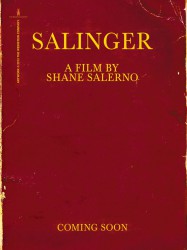
Salinger (2013)
Directed by Shane Salerno
Origin USA
Genres Documentary
Themes Films about writers, Documentaire sur une personnalité
Actors Philip Seymour Hoffman, Edward Norton, Stephen Adly Guirgis, John Cusack, Judd Apatow, Martin Sheen
Rating66%






Rabindranath Tagore (1961)
, 54minutesDirected by Satyajit Ray
Genres Biography, Documentary, Historical
Themes Films about writers, Documentaire sur une personnalité
Actors Satyajit Ray
Rating71%





Narrated by Satyajit Ray, the film begins with the funeral procession of Rabindranath Tagore. Briefly mentioning about Kolkata, then known as "Calcutta", the documentary explains the Tagore lineage, starting with Dwarkanath Tagore. While documentary mentions Dwarkanath Tagore's elder son Debendranath Tagore's association with an Indian religious, social, and educational reformer Raja Rammohun Roy and introduces some of his children out of fourteen, it moves to the birth of child Rabindranath Tagore, fondly called as "Robi". The film then narrates Robi's initial schooling days, his trip to northern India with his father, publication of his first poem in his father's magazine and his failed attempt for higher education at London.

Poetry in Motion (1982)
, 1h31Origin Canada
Genres Documentary
Themes Films about writers, Documentaire sur une personnalité
Actors John Cage, Tom Waits
Rating69%





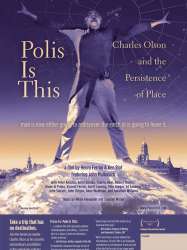 , 56minutes
, 56minutesDirected by Henry Ferrini
Origin USA
Genres Documentary
Themes Films about writers, Documentaire sur une personnalité
Actors John Malkovich
Rating77%





Polis Is This is a film that follows the life of the poet Charles Olson. Filmmaker Henry Ferrini uses archival footage of Olson, as well as an array of interview subjects, including actor John Malkovich, to paint a picture of Olson and his life. Throughout the course of the film, Olson struggles to save Gloucester, Massachusetts, his home town, from progress, which in his opinion was taking away the town's very essence. Henry Ferrini is a native of Gloucester himself, and feels the way Olson does about the issues of progress. Polis is This encourages viewers to appreciate where they come from and educates them about the extraordinary possibilities that exist in the ordinary things that exist around them in their daily lives.
 Connection
Connection